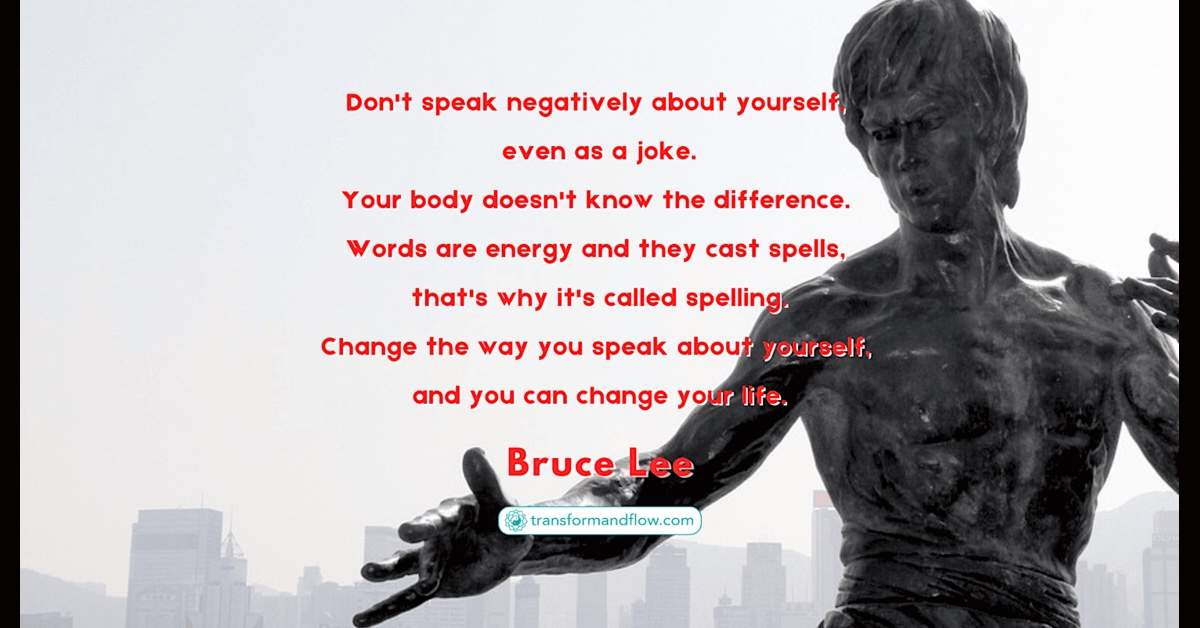“Don’t speak negatively about yourself, even as a joke. Your body doesn’t know the difference. Words are energy and they cast spells, that’s why it’s called spelling. Change the way you speak about yourself, and you can change your life.” Bruce Lee
Negative self-talk can have profound effects on both mental and physical health. Engaging in critical inner dialogue increases stress levels, diminishes self-esteem, and heightens the risk of mental health issues such as depression and anxiety. Physiologically, persistent negative thoughts can lead to increased inflammation and a weakened immune system, making the body more susceptible to illnesses.
Conversely, transforming your internal dialogue can significantly alter your responses to external challenges. By replacing negative self-talk with positive affirmations, individuals can enhance their problem-solving abilities and resilience. This shift in mindset fosters a more optimistic outlook, enabling better stress management and improved overall well-being.
The language you use internally reflects your thought patterns and beliefs. Consistently negative self-talk reinforces limiting beliefs, creating a self-fulfilling cycle of doubt and underachievement. In contrast, cultivating a positive internal dialogue promotes self-compassion and confidence, leading to more proactive behaviors and successful outcomes.
The way you talk to yourself has a powerful impact on both your physical health and your ability to handle challenges in life.
Shifting to positive self-talk can help rewire your thought patterns, build resilience, and improve overall well-being. However, this is easier said than done because your internal dialogue is deeply rooted in your subconscious mind. It runs on autopilot, shaped by past experiences and the conclusions you’ve drawn from them.


